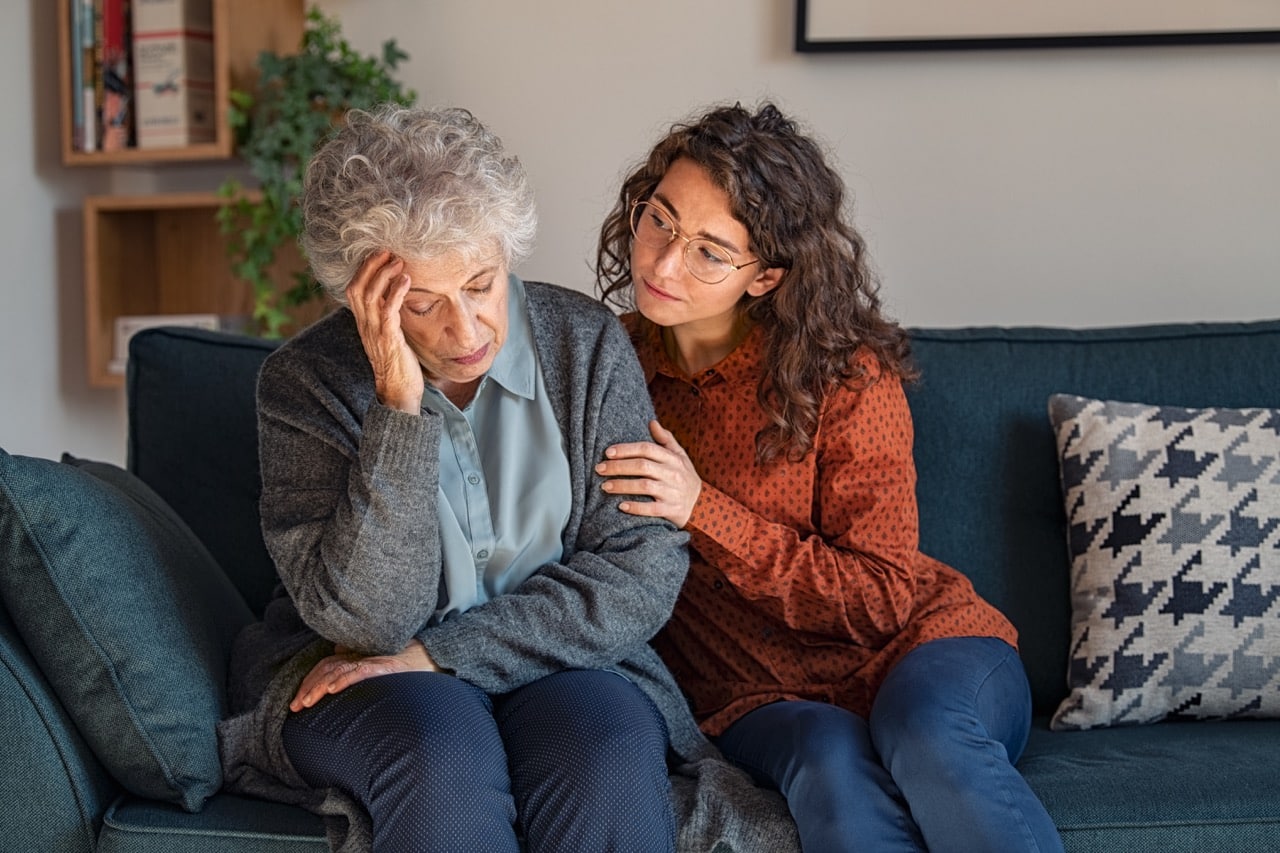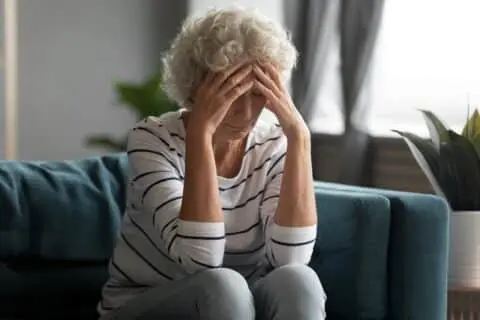Depression is a common mental health condition that can affect people of all ages. In seniors, however, depression may be an early sign of dementia. Studies have shown a strong link between depression and dementia and that many seniors diagnosed with depression eventually develop dementia. If you are concerned about your elderly loved one’s mental health, it is important to be aware of the signs and symptoms of depression and dementia.
In this blog, we will explore the link between depression and dementia in seniors. We will discuss the signs and symptoms of both conditions and offer tips for how to support your loved one if you are concerned about their mental health.
If you or someone you know is struggling with depression, it is important to seek help from a medical professional. Depression is a treatable condition, but it should not be ignored. If you are concerned that your elderly loved one may be suffering from depression, we encourage you to reach out to their doctor or a mental health professional for help.
Contents
Understanding Dementia
Dementia is a broad term that is used to describe a decline in cognitive function. This can include problems with memory, language, thinking, and judgment. Dementia is not a normal part of aging, but it is common in older adults.
While dementia is most common in older adults, it can affect people of all ages. According to the Alzheimer’s Association, about six million Americans over the age of 65 have dementia. This number is expected to rise to nearly 14 million by 2060.
There are many different types of dementia, but the most common form is Alzheimer’s disease. Other types of dementia include Lewy body dementia, frontotemporal dementia, and vascular dementia.
Dementia can be a devastating condition for both the person suffering from it and their loved ones. This is because it can cause a decline in cognitive function and physical abilities. This can make it difficult for the person to live independently and care for themselves. In some cases, dementia can also lead to aggression or changes in mood and behavior.
While there is no cure for dementia, there are treatments that can help manage the symptoms. These treatments can help improve the quality of life for both the person with dementia and their caregivers.
Depression in Seniors
Depression is a common mental health condition that affects people of all ages. According to the National Institute of Mental Health, about 16 million adults in the United States suffer from depression. While depression can occur at any age, it is more common in older adults. In fact, the CDC reports that about one in ten adults over the age of 60 suffers from depression.
Depression is more than just feeling sad or down. It is a serious mental health condition that can cause various physical and emotional problems. Symptoms of depression can include changes in sleep, appetite, energy levels, and concentration. Depression can also cause feelings of hopelessness, worthlessness, and guilt. In severe cases, depression can lead to thoughts of suicide.
If you are concerned that your elderly loved one may be depressed, it is important to talk to their doctor. Depression is a treatable condition, and many resources are available to help seniors cope with this mental health condition.
The Link Between Depression and Dementia
There is a strong link between depression and dementia. Studies have shown that people who are diagnosed with depression are more likely to develop dementia. In fact, the Alzheimer’s Association reports that people with depression are twice as likely to develop Alzheimer’s disease.
The link between depression and dementia is not fully understood, but several theories exist. One theory is that depression may lead to changes in the brain that increase the risk of dementia. Another theory is that depression and dementia may share common risk factors, such as genetics or lifestyle choices.
How To Help Seniors With Depression

If you are concerned that your elderly loved one may be depressed, there are several things you can do to help. First, make sure to talk to their doctor. Depression is a treatable condition, and their doctor can provide them with the resources they need to get help.
You can also offer your support to your loved ones. This can include helping them with their daily activities, such as grocery shopping or paying bills. You can also offer to spend time with them and listen to their concerns.
It’s important to understand that seniors with depression may not want to talk about their condition. They may be embarrassed or ashamed of their symptoms. It’s important to be patient and understanding with your loved one. Let them know that you are there for them and that they are not alone.
How To Help Seniors With Dementia
If your elderly loved one has been diagnosed with dementia, there are several things you can do to help. First, make sure to talk to their doctor. Dementia is a progressive condition, and their doctor can provide them with the necessary resources to manage their symptoms. For instance, their doctor may recommend medication or therapy.
You can also offer your support to your loved one. This can include helping them with their daily activities, such as grooming or bathing. You can also contribute to spending time with them and providing companionship. It’s important to be patient and understanding with your loved one. Let them know that you are there for them and that they are not alone.
If you think dementia is interfering with your elderly loved one’s quality of life, you may consider moving them to a memory care facility. Memory care facilities provide 24-hour supervision and support for seniors with dementia. They also offer a variety of activities and programs designed to improve the quality of life for residents.
Conclusion
Depression in seniors is a serious issue that should not be ignored. If you or someone you know is experiencing depression, it’s important to seek professional help. Depression may be an early sign of dementia, so getting a proper diagnosis is important. Early intervention is key in treating both conditions.

